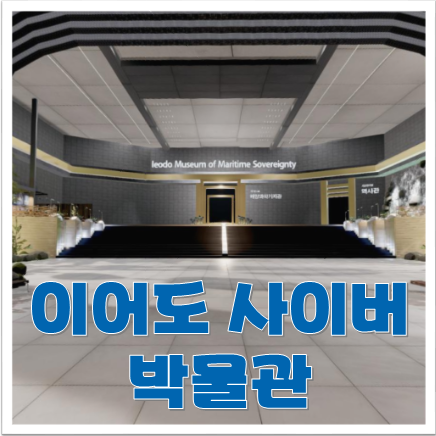<THE KOREA TIMES, 2018. 11 23>, Global maritime experts urge to …
페이지 정보

본문
 |
| Society of Ieodo Research President Koh Choong-suk, front row sixth from left, poses for a group photo during the sixth Ieodo International Seminar on Jeju Island, Thursday. / Korea Times photo by Park Ji-won |
By Park Ji-won
JEJU ISLAND ― Global maritime experts on sea disputes gathered on Jeju Island to discuss how to resolve territorial conflicts in the East Asian region.
They said at the sixth international seminar on Ieodo, a rock near Jeju, that related countries, especially China, need to cooperate and uphold the rule of international law. Tensions have been intensifying there following China's efforts to expand its territory in the region in a battle with the United States for supremacy.
Under the theme "Beyond East Asian Maritime Conflict," the two-day forum ran through Friday where experts from the U.S., China, Japan, Vietnam and the Philippines gathered to share their knowledge to seek peaceful cooperation regarding the disputed island and territories among the East Asian countries. The seminar was divided into three sessions ― two were held on Thursday and the remaining one on Friday. Each session was followed by a discussion, which included a Q&A period.
The Society of Ieodo Research, a Jeju Island-based think tank, was hosting the event while The Korea Times, Hankyoreh Media Group and the Ministry of Oceans and Fisheries were co-sponsors.
 |
| Seen is the Ieodo Ocean Research Station run by the South Korean government near Ieodo, a submerged rock situated 149 kilometers southwest of the country's southwestern Marado, in December 2013. / Korea Times file |
Ieodo, disputed rock near Jeju
Some 150 kilometers southwest of Marado, the nation's southernmost island, sits Ieodo, or Socotra Rock, a submerged rock with a unique place in Korean lore.
Ieodo was formerly recognized to be in international waters until 1996, when the United Nations Convention on the Law of the Sea (UNCLOS) extended the maximum reach of Exclusive Economic Zones (EEZs) to 200 nautical miles (370 kilometers), the prelude of the international territory dispute.
The South Korean government made a declaration on Jan. 18, 1952, proclaiming the Syngman Rhee line, which defined the South's territorial waters including Socotra Rock, beyond internationally accepted territorial waters, around the entire Korean Peninsula.
However, the Chinese government started insisting on its jurisdiction of the reef around 1996, raising a territorial dispute with the South Korean government as Beijing has been doing with Japan over the Diaoyu-Senkaku Islands and with Southeast Asian nations such as Philippines and Vietnam over the boundary line in the East and South China Seas.
The dispute surrounding Ieodo in the ocean is related with overlapping EEZs, which give a country the right to resources and exploration. Since 1996, South Korea and China have been making no progress in negotiations on drawing the line for the economic zone.
Seoul's case lies in the "median line" principle that says a maritime boundary equidistant from two sides based on the International Tribunal for the Law of the Sea. Korea also argues that the rocks are located on its continental shelf.
China, calling the rock Suyan, calls for the "natural prolongation" of its land territory and insists the matter be dealt with through a series of negotiations. However, Beijing aircraft have entered into Korean Air Defense Identification Zone (KADIZ) more than six times this year, which critics point out signals China's intention to nullify the international customary rule.
International Law
Many experts who participated in the seminar insisted the dispute be settled based on international law and order in a peaceful way.
"Any dispute happening in East Asian waters should be resolved amicably according to the principles of international law and the international standards of external disputes," Koh Choong-suk, president of the think tank, said in an opening speech, Thursday.
"No maritime conflict issue should be dominated by a unilateral claim or logic. Those conflicting interests can certainly be settled with cooperative agreements."
Listing the threats to the marine and coastal environments, largely caused by the ocean warming and climate change, the seminar's keynote speaker Linda Paul, director of the Ocean Law & Policy institute of the Pacific Forum, suggested the establishment of a code of conduct and common rules for maritime activity in the East and South China Seas as well as the open and transparent discussion among middle-level managers in multilateral meetings as one way to settle the disputes.
"Code should be interpreted and applied in conformity with the relevant rules of international law, as reflected in the United Nations Convention on the Law of the Sea, 1982," Linda said in her presentation document.
"Rules should facilitate linkages among resource managers, scientists, technical experts, and academic communities from Asia-Pacific countries to help policymakers become more aware of marine environment issues and their potential impact on national and regional security."
She introduced the application of present international law, citing the 2016 International Tribunal for the Law of the Sea finding that China's nine?dash line had no legal basis for its claims to historic right to resources in the South China Sea and that none of the land features met the requirements of an exclusive economic zone for China.
Emphasizing the international community should pay more attention to environmental changes, she also said sea level rise caused by warming water can affect maritime resources, posing a threat to biodiversity of maritime species.
Warning that the idea of building an island in the South China Sea, which she called "disastrous," she suggested making the rock a symbol of maritime protection.
"Forget the United States and China have a dispute. It affects everybody. Regarding Ieodo Island, I think I would like to see South Korea consult with other East Asian countries about setting aside Ieodo area as a marine protected area and a particular sensitive sea area."
Another presenter Ha Anh Tuan, director of the Center for Policy Analysis under the Bien Dong Maritime Institute from Vietnam, stressed the countries' duty to protect the maritime environment. "We see the new trend of using new equipment, vehicles in the region, that the international law have not fully addressed," he said. "Different countries may have different interpretation. How can we develop the international law to cope with the new development technologies? We need to think about it as well."
Lee Jae-hyon, senior fellow and director of the center for ASEAN and Oceania Studies at the Asan Institute for Policy Studies, said South Koreans should change their attitude and expand their attention, which is preoccupied with Korean Peninsula issues, to Southeast Asia, as the South's economy is largely dependent on trade with those Southeast Asian countries, urging ASEAN member states to cooperate with each other to cope with their own similar situations.
"Most of Southeast Asian countries are squeezed in between the U.S. and China. South Korea is too. We are experiencing pretty much the same strategic and security dilemmas. This is a good point that Korea and ASEAN countries need to build our strategic and security cooperation."
When Yang Ze-wei, professor of the Wuhan University School of law, was asked for his opinion on the issue, the Chinese scholar reiterated the Chinese government position of bilateral cooperation with neighboring countries.
During the afternoon presentation by Mouri Aki, assistant professor of the University of Tsukuba on international disputes, the Japanese scholar briefed the history of dispute management of the Japanese government while stressing Japanese Prime Minister Shinzo Abe's diplomacy over the issue is positioning Japan as the defender of the existing order.
Other presenters included Korea Institute for Maritime Strategy senior research fellow Lee Choon-kun, University of the Philippines-Diliman professor Aries Arugay, University of Tsukuba assistant professor Mouri Aki, Inha University professor Kim Hyun-soo and Korea Institute for Maritime Strategy President Lee Seo-hang.
- 이전글<제주일보, 2018. 11. 20>, ‘제6회 이어도 국제세미나’ 22, 23일 제주 개최 18.11.27
- 다음글<제주매일, 2018. 11. 20>, 제6회 이어도 국제세미나 22~23일 개최 - ‘동아시아 해양갈등을 넘어’라는 주제로 18.11.26
댓글목록
등록된 댓글이 없습니다.



